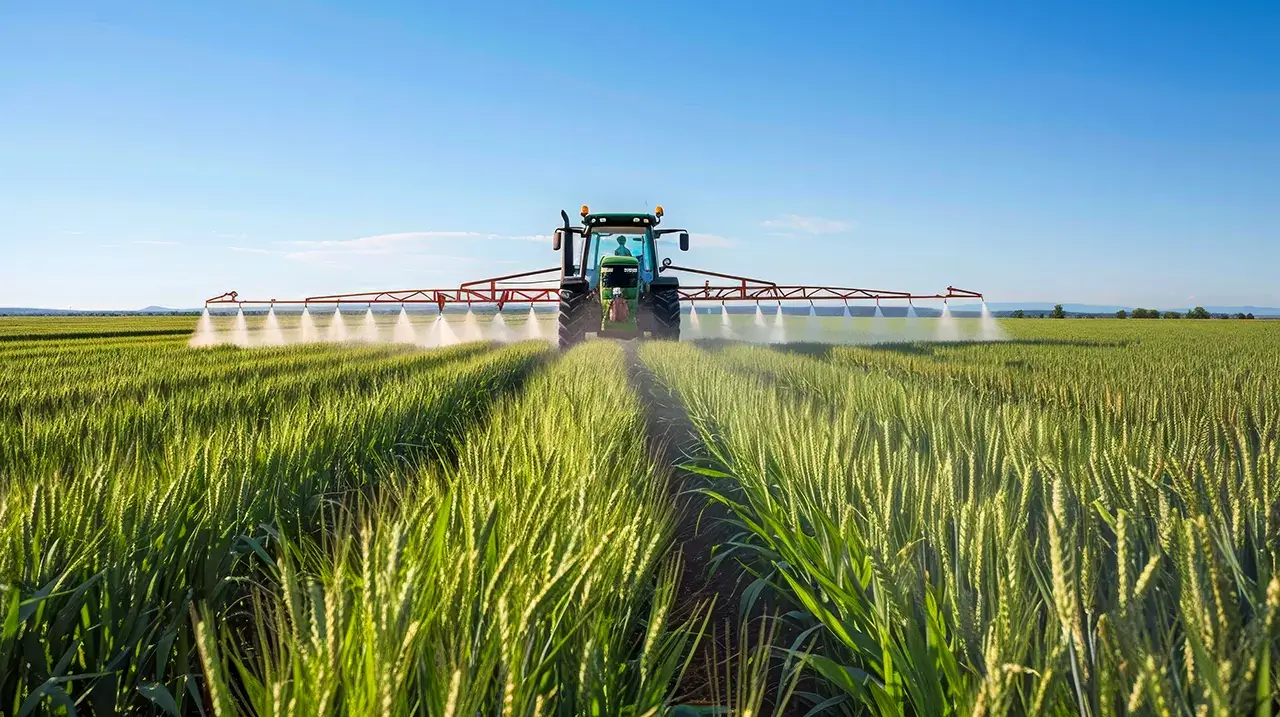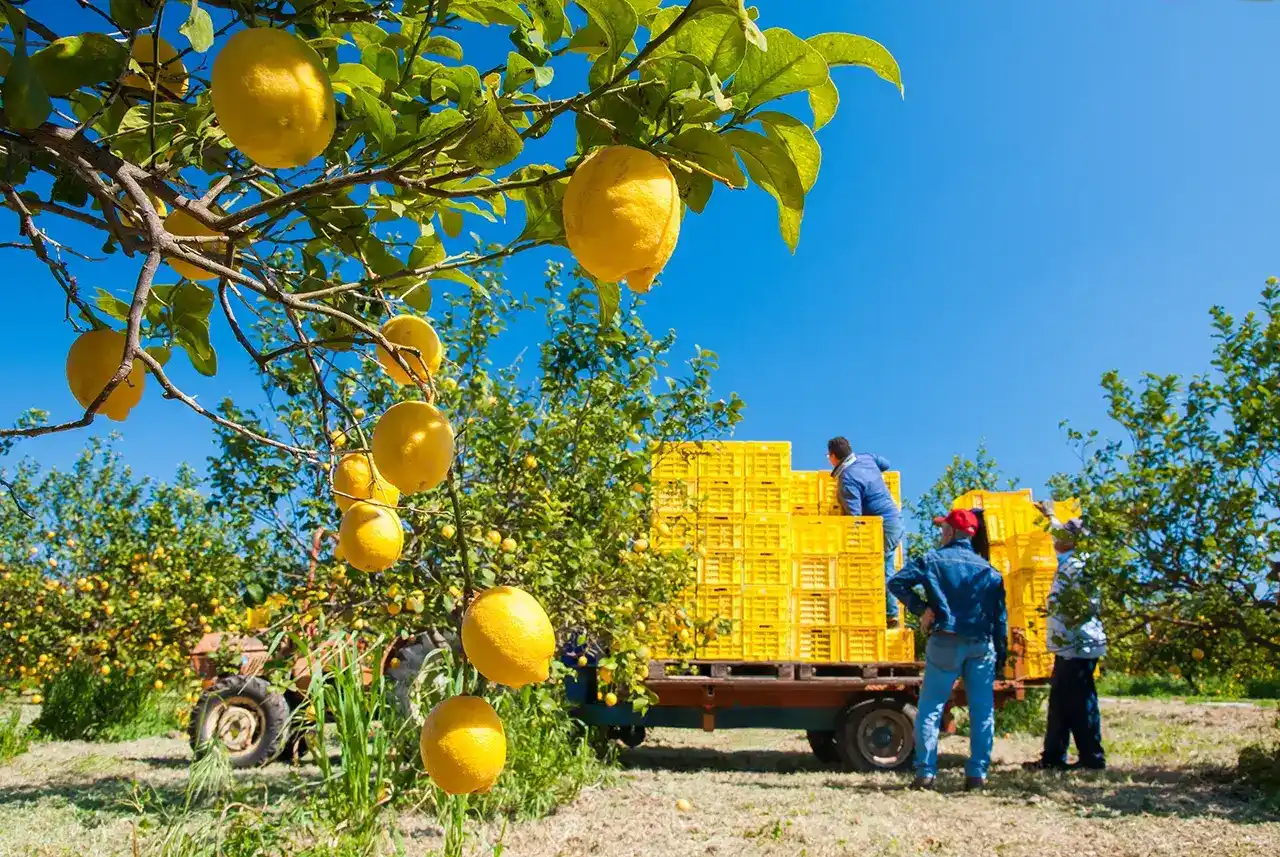Important crop protection products in modern agriculture
27 Aug 2024

As the world’s population continues to trend upward, the role of crop protection in modern agriculture is ever more critical.
With limited space on the planet, food production needs to be streamlined and efficient, with little room for low yields and crop losses – challenges often caused by pests, weeds and diseases. For farmers, the economic impact of these issues can also be significant, with entire livelihoods wiped out by one locust swarm or fungal blight.
Thankfully, there are various crop protection measures you can take to safeguard your plants from such complications, ensuring a successful harvest every year.
But exactly what is crop protection? And what are the best crop protection methods? In this article, we’ll find out how to protect crops with a winning formula for success.
The essential elements of crop protection
Robust crop protection usually requires a combination of three essential elements; insecticides, spray adjuvants and cultivation strategies.
Insecticides
Essential for keeping destructive bugs and pests at bay, there are two types of commonly used insecticides:
- Contact Insecticides: As the name suggests, these insecticides kill pests on contact and are also known as pyrethroids.
- Systemic Insecticides: These insecticides enter the plant matter and kill pests that feed on plant tissue.
Insecticides are an essential tool in any farmer’s arsenal for controlling pest populations quickly and effectively, ultimately improving the quality of crops and increasing long-term yields.
Spray adjuvants
A spray adjuvant is a substance added to insecticides and other crop protection chemicals to improve their performance and efficacy. There are several different properties of spray adjuvants, including:
- Spreaders: These help to distribute insecticide spray evenly over plant surfaces for maximum coverage and protection.
- Stickers: These improve the sticking power of insecticides and other crop protection products.
- Deposition agents: These improve spray adhesion in a range of specific circumstances such as waxy leaves or dusty surfaces.
Put simply, spray adjuvants are specially designed to enhance the efficiency of insecticides by amplifying their coverage and improving their ability to stick to different crops in all environments. A fortified crop protection approach combines insecticides with spray adjuvants for the best chance of success.
Crop protection strategies
Insecticides and spray adjuvants should be backed up with planting and biological strategies to minimise losses caused by pests, weeds and diseases. These strategies include:
Crop rotation: Not only does it help to improve soil health, crop rotation prevents the build-up of pests and diseases in one area.
Resistant varieties: Choosing disease-resistant plant varieties may cost more upfront, but can pay dividends in healthy, profit-boosting yields.
Biological control: This is an organic pest control method that involves using a natural predator of the problem pest to keep populations under control. For example, many farmers release ladybugs, known predators of aphids, which are a common horticultural pest.
All of these methods and more can be used to keep pest populations at a minimum and prevent plant disease.
The role of agricultural spray oil in crop production
What are spray oils?
There are lots of types of oil used in agriculture, including a modern crop protection product known as spray oil. This is a refined petroleum or plant-based oil used to deter both destructive insects and diseases.
How do spray oils work against pests and diseases?
Rather than poisoning pests like a traditional insecticide, an agricultural spray oil smothers soft-bodied insects and can even suffocate insect eggs and larvae. Spray oils can also trap fungal spores to prevent diseases from spreading.
One benefit of spray oils is that they are particularly effective against pests that are typically difficult to control with conventional insecticides, such as mites, scale insects, aphids, and mealybugs. Just one oil can target a number of different pests, whereas insecticides tend to deal with specific species.
Agricultural spray oil also typically has fewer chemicals than insecticides and is therefore seen as better for the environment when used responsibly.
Nevertheless, most modern farmers rely on a robust crop protection strategy that combines both chemical and non-chemical practices for the best results.
Considerations for using spray oils
Some crops are more sensitive to spray oils, with the risk for phytotoxicity on certain crops. However, this risk can typically be reduced with premium agricultural spray oil, pre-emulsified for stability and made from a pure, mineral base.
Conclusion
When it comes to effective crop protection in modern agriculture, the best approach combines a range of products and strategies, tailored to the unique needs of your crops and climate.
This includes traditional insecticides and spray adjuvants, as well as high-quality spray oils and clever planting strategies to secure the highest crop yields and bolster food security.
Responsible use of crop protection products is key in future-proof, sustainable farming, reducing wasted resources and supporting the world’s growing population, with a range of methods to reduce the impact on the local environment.
Whichever crop protection products you choose, always read the label and adhere to the safety precautions for the best results.
For premium agricultural spray oil and adjuvants that reduce the risk of phototoxicity, browse our Agriculture Crop Protection range.


